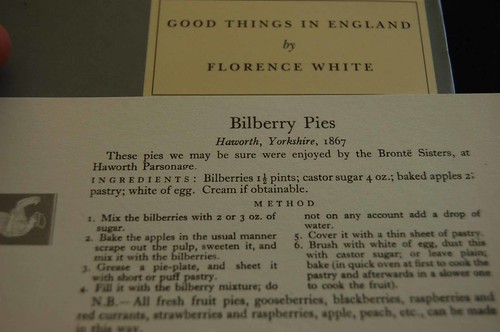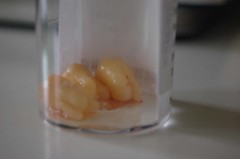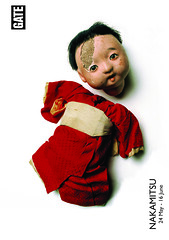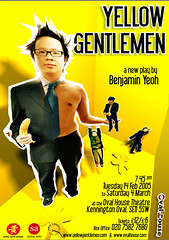Endings of plays vs novels / One Day by Nicholls
Modern plays tend to have short or very short codas. The scenes after the climax of the play. The “quick in quick out” school of scene writing which some attribute to the David Mamet style (start the scene close to the climax/turning point, end the scene close to after the turn) has been influential in this.
Compare this to Shakespeare, which had many scenes of the climax to wrap up (or create) loose ends. Today’s audience does supposedly tend to become a little bored with long codas.
However, on many occasion I do find codas satisfying but I read them more in novels.
Former actor David Nicholls (stage name David Holdaway) has written an immensely readable book: One Day which charts 20 years through the lens of one day in the off/on/off/on/sortof relationship of Emma Morley and Dexter Mayhew from 1988 onwards.
(Nicholls also adapted Simpatico for the screen) and although the one day view point structure means many chapters have a “quick in quick out” compelling drive to them towards the end of One Day he writes a very satisfying coda after the dramatic climax of the book. It gives enough insight and resolution to all the major characters of the book that leaves you feeling you know how they are coping in the world today.
Great book for holiday or tube reading. Or at any time really.
Eigengrau
Seeing or reading a play written by someone you know is not the same experience as coming to it blankly. Inferences – probably mostly imaginary – seep through like when meeting a celebrity your mind is unintentionally full of the – probably mostly imaginary – media reports. Reactions to plays build upon what you know, experience and imagine and build upon what you’ve seen before.
Intrinsic grey or Eigengrau (or Eigenlicht intrinsic light) is the colour seen by your eye in pitch darkness. The optic nerve triggers some action potentials even without light photon triggers and causes the perception of a uniform dark grey colour.
In Eigengrau, in scene 2, Mark switches his choice of tea from Rose(hip) to (Earl) grey. At the end of the play, Rose says to Cassie Grey:
Can you believe out of something so
Meaningless
you can get
Actual
Life?!
Referring to Cassie’s professed one night stand. This theme – in my reading – is riffed through out the play. Potentially meaningless or insignificant actions can or do take on momentous clothes – the stubbing out of a cigarette, the sum of £399.
Is this an indirect commentary on London as well? Flatmates brought together by Gumtree and lives that can be lead in splendid or tragic isolation.
It can be so, but need not be so, and I for one will continue my effects to connect and re-connect with those around me.
Reviews of my friend Penelope Skinner’s new play Eigengrau have been good (eg Independent, Stage, Guardian) although some dissenters (Telegraph). You can see it at the Bush theatre until 10 April, but it is already sold out on some nights, so book ahead 020 8743 5050
David Hare: writing tips
From the Guardian, which also highlights other authors writings tips.
I like Morpugo:
“Ted Hughes gave me this advice and it works wonders: record moments, fleeting impressions, overheard dialogue, your own sadnesses and bewilderments and joys.”
And in semi-jest, Richard Ford’s : “Don’t have children.”
David Hare
1 Write only when you have something to say.
2 Never take advice from anyone with no investment in the outcome.
3 Style is the art of getting yourself out of the way, not putting yourself in it.
4 If nobody will put your play on, put it on yourself.
5 Jokes are like hands and feet for a painter. They may not be what you want to end up doing but you have to master them in the meanwhile.
6 Theatre primarily belongs to the young.
7 No one has ever achieved consistency as a screenwriter.
8 Never go to a TV personality festival masquerading as a literary festival.
9 Never complain of being misunderstood. You can choose to be understood, or you can choose not to.
10 The two most depressing words in the English language are “literary fiction”.
Matters you can’t know until you know them
There are matters you can’t know until you know them. Then you can’t unknow them. There are some experiences that are difficult to fully understand until you have them. Then there is no going back.
I will know if my characters have had a parent, child or closed loved one die. If you haven’t suffered that type of grief or bereavement, you can find it difficult to understand someone who has. Characters can suffer empathy failure.
Recently, I think the same of having children. We all instinctively know that having children changes your life. But quite how completely and how pervasively and how subtly is a process that I did not fully appreciate until – of course – I had a child myself.
Benjamin Yeoh won the international 2006 Gate Translation award for NAKAMITSU. Ben was born in London to a Chinese-Malay father and Singaporean mother. He trained as a behavioural neuroscientist at Cambridge, before studying play writing at Harvard. Theatre: LEMON LOVE, Finborough Theatre (2001); LOST IN PERU, Camden People’s Theatre (2003); YELLOW GENTLEMEN, Oval House Theatre (2006); NAKAMITSU, Gate (2007). Radio: INVENTOR OF FIREWORKS, Radio 3 (2004); PATENT BREAKING LIFE SAVING, BBC World Service (2006); PLACES IN BETWEEN, Radio 4 (2007).
Blog currently on sabbatical.
To lead them, you need to love them
“You can’t lead the people if you don’t love the people; you can’t save the people if you don’t serve the people”
attrib to Cornel West
A time to be born, and a time to die.
My neighbour and friend at Harvard, who was training to be a priest, recently gave me a book on David Jones. Jones’ poems In Parenthesis and Anathemata are great works I come back to time and again. They are not easy first reading but very rewarding.
From In Parenthesis, part 7
And to Private Ball it came as if a rigid beam of great weight
flailed about his calves, caught from behind by ballista-baulk
let fly or aft-beam slewed to clout gunnel-walker
below below below.
When golden vanities make about,
you’ve got no legs to stand on.
He thought it disproportionate in its violence considering
the fragility of us.
The warm fluid percolates between his toes and his left boot
fills, as when you tread in a puddle–he crawled away in the
opposite direction.
Turning to economic woes, I’ve only just been made aware of my friend, Leigh Caldwell’s blog on economic and related subjects, called Know and Making. He runs his own business and comments from the front lines, so to speak.
In the tide of reading a lot of commentary on the current state of the economy I rediscovered a poem from Ecclesiastes and with my recent correspondence with my priest friend on transubstantiation I thought appropriate for these times. (I amalgamate the translations somewhat).
To everything – a season, and a time to every delight under the heavens:
A time to be born, and a time to die. A time to plant, and a time to pluck the planted.
A time to slay, and a time to heal. A time to break down, and a time to build up.
A time to cry, and a time to laugh. A time to mourn, and a time to dance.
A time to scatter away stones, and a time to pile up stones. A time to embrace, and a time to be far from embracing.
A time to seek, and a time to destroy. A time to keep, and a time to throw away.
A time to rend, and a time to sew. A time to be silent, and a time to speak.
A time to love, and a time to hate. A time of war, and a time of peace.
Ecclesiastes 3. [Young’s literal / King James / Yeoh translation]
Hamlet / Fat maggots
we fat all /
creatures else to fat us, and we fat ourselves for /
maggots
Investing / Warren Buffett
Only invest what you can afford to lose and for most people (9/10, I think) a low cost tracker fund is probably the best vehicle for them. For others who want to invest for the long term themselves, Warren Buffett is a very good guide. He writes in his 2007 shareholder letter:
“Charlie [Munger] and I [Warrren Buffett] look for companies that have a) a business we understand; b) favorable long-term economics; c) able and trustworthy management; and d) a sensible price tag. We like to buy the whole business or, if management is our partner, at least 80%. When control-type purchases of quality aren’t available, though, we are also happy to simply buy small portions of great businesses by way of stock-market purchases. It’s better to have a part interest in the Hope Diamond than to own all of a rhinestone.
A truly great business must have an enduring “moat” that protects excellent returns on invested capital. The dynamics of capitalism guarantee that competitors will repeatedly assault any business “castle” that is earning high returns. Therefore a formidable barrier such as a company’s being the low-cost producer (GEICO, Costco) or possessing a powerful world-wide brand (Coca-Cola, Gillette, American Express) is essential for sustained success. Business history is filled with “Roman Candles,” companies whose moats proved illusory and were soon crossed.
Our criterion of “enduring” causes us to rule out companies in industries prone to rapid and continuous change. Though capitalism’s “creative destruction” is highly beneficial for society, it precludes investment certainty. A moat that must be continuously rebuilt will eventually be no moat at all.
Additionally, this criterion eliminates the business whose success depends on having a great manager. Of course, a terrific CEO is a huge asset for any enterprise, and at Berkshire we have an abundance of these managers. Their abilities have created billions of dollars of value that would never have materialized if typical CEOs had been running their businesses.
But if a business requires a superstar to produce great results, the business itself cannot be deemed great. A medical partnership led by your area’s premier brain surgeon may enjoy outsized and growing earnings, but that tells little about its future. The partnership’s moat will go when the surgeon goes. You can count, though, on the moat of the Mayo Clinic to endure, even though you can’t name its CEO.
Long-term competitive advantage in a stable industry is what we seek in a business. If that comes with rapid organic growth, great. But even without organic growth, such a business is rewarding. We will simply take the lush earnings of the business and use them to buy similar businesses elsewhere. There’s no rule that you have to invest money where you’ve earned it. Indeed, it’s often a mistake to do so: Truly great businesses, earning huge returns on tangible assets, can’t for any extended period reinvest a large portion of their earnings internally at high rates of return. …”
Strangely (although perhaps not so strangely if you look at incentive structures in the industry) few money managers who purport to invest for the long term, actually manage to or manage money anything close to what Buffett advises…
Caryl Churchill
‘Playwrights don’t give answers, they ask questions‘
Mark Ravenhill writes an article ahead of the Royal Court season of readings, I hope to catch some of the plays although I am travelling out of London most of the time.
The Caryl Churchill readings are at the Royal Court, September 16-26.
020 7565 5000, royalcourttheatre.com
Hedda – must see production
This is a theatrical highlight of 2008.
The play is brilliant and Lucy Kirkwood adapts it excellently (I’m jealous, I didn’t do it – please someone call me next time (!!) I’d give it a good go…).
Carrie Cracknell directs with keenness. The physical relationships between the characters staged beautifully, concentrating the language and conflict.
The use of a second stage level, I thought was a superb idea. Designer (Holly Waddington) or director or whoever deserves plaudits. The set seemed to sit just right for the atmosphere, peeling layers of neglect, so much potential, needing love. Even, the humid claustrophobic night of the summer we are having, conspires to add to the electric, cloying environment.
The acting was, across the board, excellent and of the highest level. [On a personal note, it's fascinating to see how an actor changes and develops over the years. I remember - not that well - Alice Patten at Cambridge University (Queen's I think), and then in Vincent in Brixton].
Hedda (Cara Horgan) was sensual, vulnerable, manipulative, fragile and tough at each turn. Lots of beautiful leg and bare feet, yet appropriate and not gratuitous. A beautiful flower “rain dashed”
George (Tom Mison) in love with a girl, he can’t save; in awe of a man he can’t match – awkward but somehow still steering a mainly sincere and hopeful course
Thea (Alice Patten) a nervy rabbit, wanting to blossom into the woman she knows she could be. A woman Eli has allowed her to come.
Toby (Christopher Obi) – a smooth snake; a “lawyer at heart”
Eli (Adrian Bower) – perhaps Toby was right when he called him a make-believe; but “I don’t want to be that man but the things is that I also do… because it’s boring with him life is fucking dull that’s what nobody admits”
Julia (Cath Whitefield) – the “spinster”, elder sister / mother figure
And all the interlocking triangles these tangled loves and lovers make. All judged extremely well. A beautiful, heart rending mess.
I expect tickets will sell out fast although it may extend slightly or be transferred. Be quick.
At Gate Theatre, until 27 Sep
http://www.gatetheatre.co.uk/ 020 7229 0706
Juan Munoz / Theatre

“dira’ que loque me interesa en el teatro es que no hay replica posible. Cuando cae el telon te vas. Una pieza deberia tener esa anolidal no poderla replicar”
“I would say that what interests me about the theatre is that no reply is possible. When the curtain falls, you leave. A wok of art should have ths quality of not being able to reply.”
I saw this translated as “art should have this quality of not admitting a reply” but I read it as art should make the viewer unable to reply/speak.
I’m not sure I agree in all cases as I consider theatre often a conversation, and art too. It is not complete without a viewer, without an audience. The audience some times needs a reply.
Yet, the best art can leave you “speechless” and perhaps this is what Munoz is alluding to. Or maybe it is as the first translator says, he thinks great art has the quality of not being able to be argued with.
Persephone bookshop
Wonderful, small, independent book shop on 109 Kensington Church Street, W8 7LN. Persephone “reprints forgotten classics by twentieth-century (mostly women) writers”

Persephone Bookshop
I confess to a bias, as I used to work in Elgin Books and when Elgin Books had to close down, it survived in a non-shop form for many years. However, it has now joined Persephone and its spirit lives on. I bought three books; two cookery and one fiction.
Good Things in England by Florence White is an amazing recipe book and record of old English recipes.

The blurb suggests: “‘Ever wondered how to cook Thomas Hardy’s frumenty, make Izaak Walton’s Minnow Tansies or pickle elder buds?’ asked the Sunday Telegraph. ‘Good Things in England is a collection of 853 regional recipes dating back to the C14th. First published in 1932, it was written by Florence White, the country’s first ever freelance food journalist, and, like all classic culinary works, it is a pleasure to read.”

Wisdom Teeth
Recently had my wisdom teeth out. Ouch.

Cheap Theatre tips
Look out for pay as much as you want nights and Mondays are good too.
Gate Theatre has Monday as pay as you want. Royal Court has a cheap Monday.
This is on top of previews, and other regular offers.
Memory
Milan Kundera: “The struggle of people against power is the struggle of memory against forgetting.
How many times have you written letters that you have not sent? I’ve been meaning to write to John Berger for around 15 years. I think this year I may finally do it…
I can’t tell you what art does and how it does it, but I know that art has often judged the judges, pleaded revenge to the innocent and shown to the future what the past has suffered, so that it has never been forgotten.
I know too that the powerful fear art, whatever its form, when it does this, and that amongst the people such art sometimes runs like a rumour and a legend because it makes sense of what life’s brutalities cannot, a sense that unites us, for it is inseparable from a justice at last. Art, when it functions like this, becomes a meeting-place of the invisible, the irreducible, the enduring, guts and honour.
Recommending
Under the Blue Sky. David Eldridge play. I know David, although not very well and he was a great blogger before he closed his blog. His play is many faceted, but I like it as 3 connecting love stories, which I think, in the end, affirm life. And if you take away from the theatre more than you began with, then that has to be worth seeing. Interview in Indy here.
Stars in the Morning Sky. At the Riverside Studios. I’ve not seen it but a friend is in it and could be worth a trek West London.
…some trace of her at the National Theatre. I like Katie Mitchell’s work and Hattie Morahan is a friend. I wonder how the mise-en-scene has developed since Attempts on her Life… suggestion from the Whingers, maybe not that much.
Both Kung-Fu Panda and Wall-E. I love animation in all its forms and these are two – different – but hugely enjoyable films for all ages. You will learn about the Wuxi finger hold in Kung-Fu Panda and be charmed by robots in the other!
On the home front: I’ve now had several portions of home grown french beans and courgettes. Courgettes particularly are easy to grow, so if you have any outside patch I say plant one in a pot next year. If you only have indoor space then I recommend radishes.
Festivals
There is an atmosphere of shared experience at festivals that theatre only occasionally matches. I thought this while watching Beck at the recent Hyde Park festival.
To be fair, theatre makers probably do not always wish to engender this experience. Punchdrunk in eg Masque of the Red Death encourage you to create your own adventures and story throughout the evening.
Festivals do this too with the easier ‘framing device’ of live bands!
I wonder if groundling crowds at the Globe Theatre in Shakespeare’s time or watching a hanging brought humans together in this way, historically.
What place now football matches? There’s an amazing shared experience for fans in that – even rival ones.
Human development
As an analyst I’m always intrigued by measures of “value”.
Investors will pay different multiples on the profits of different companies, depending on the risk/reward prospects.
Higher profits one year does not necessarily mean a higher value for investors for all myriad of reasons.
Therefore, I find this human development index – HDI – fascinating.
It shows that while the US is the richest country overall in terms of, say, absolute GDP. It is not by some way the best in measures that could be claimed to measure human development (and by proxy perhaps, happiness?) such as life expectancy and infant mortality.
In the words of Nobel laureate economist Amartya Sen, who developed the HDI in 1990: “Human development is concerned with what I take to be the basic development idea: namely, advancing the richness of human life, rather than the richness of the economy in which human beings live, which is only a part of it”
Recent Exploits
Recent exploits include
Dressing up as a fairy godmother
Researching where Counter’s Creek starts and runs in London. It’s a “lost” river.
Finding a copy of the Worm Scrubs Act 1879 (still in force but not available on the internet. Thank you Guildhall library). Editing the wiki on it to reflect my reading. Thinking about use of vacant urban spaces. Like here. Pic.
Seeing Blackwatch for second time. Excellent. Still excellent.
Seeing …Sisters. Sadly, only once.
Being rejected by Radio 4. Basically because of the economy. Not that R4 has run out of funds, but more because my story heavily involved the City and the economy.
Making a Freedom of Information Act request. One of the best UK legislations in the last 50 years.
Thinking about GLP-1 analogues and diabetes.
Trying out Hix Chop house and Portal restaurants. Both good but expensive if you’re paying.
Watching my beans and courgettes grow and getting distressed by mould and slugs; and the neighbours’ cats constantly pooing in the garden. Ugh.

